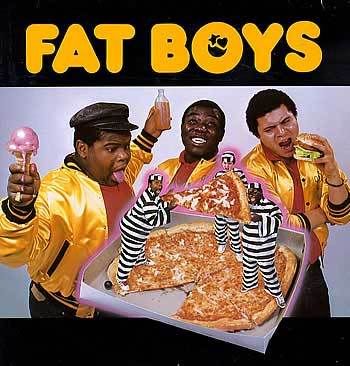

Kelefa uses Turf Talk to illustrate the precarious position
emcees are in when it comes to marketing and promotion
and getting LARGE for independents,
And then there is Turf Talk, a loudmouthed upstart from Vallejo, Calif., who made arguably the year’s most exciting hip-hop album, “West Coast Vaccine (The Cure).” It came out through Sick Wid’ It Records, which is run by his cousin, the rapper E-40. (The album was released through a distribution deal with Navarre, which sold its music distribution business to Koch in May.) And despite Turf Talk’s flamboyant rhymes, the album has pretty much remained a secret. Without a national radio hit or even a proper music video, Turf Talk has promoted the CD mainly through West Coast regional shows, from San Diego to Tacoma, Wash.
Reached by telephone at his home in Concord, Calif., Turf Talk tried to put the best spin on a mixed-up year. “The independent game is starting to shine again,” he said. But when pressed, he said he would love to cross over to the mainstream, speaking in the third person: “Turf Talk wants to be known all across the world.”
Kelefa acknowledges the difficulties of being
independent when he writes,
It’s easy to romanticize Turf Talk’s grass-roots approach: his do-it-yourself video shoot, his evident pride in how much he has accomplished on his own, his commitment to the family business. But for him the promise of exposure and the long shot at stardom are too tempting to reject.
“I love the independent money,” he said. “I’m living good, I drive nice cars. But right now, if you asked me, I’d say, ‘Turf Talk wants to go major.’ Because you can always come back to independent.”
Sales are down all over, but hip-hop has been hit particularly hard. Rap sales fell 21 percent from 2005 to 2006, and that trend seems to be continuing. It’s the inevitable aftermath, perhaps, of the genre’s vertiginous rise in the 1990s, during which a series of breakout stars — Dr. Dre, Snoop Dogg, Tupac Shakur, the Notorious B.I.G. — figured out that they could sell millions without shaving off their rough edges. By 1997 the ubiquity of Puff Daddy helped cement hip-hop’s new image: the rapper as tycoon. Like all pop-music trends, like all economic booms, this one couldn’t last.And this statement was observant if not downright depressing,
Eventually, a (new?) group of executives will find a business model that doesn’t depend on shiny plastic discs, or digital tracks bundled together to approximate them. But for now the major league is starting to look a lot like the minor one. And in ways good and bad and utterly unpredictable, rappers may have to reconsider their place in the universe, and their audience. Some will redouble their commitment to nonsense, like Project Pat. Some will wallow in their misery, like Prodigy. Some will merely revel in their own loudmouthiness, like Turf Talk, hoping someone will pay attention. But if sales keep falling, more and more rappers will have to face the fact that they aren’t addressing a crowd, just a sliver of one."More rappers will have to face the fact that they aren’t
addressing a crowd, just a sliver of one"??!?!?!?!?!?!
Oh. And the fact that the music industry is suing their customers
is downright despicable.
========
========
I wonder how the music will change when emcees recognize that
that they only have a fraction of their previous fan base?
Will more emcees start driving buses? Resort to street pharmaceuticals?
OR.
Actually start re-building a fan base, one person at a time?
========
========



2 comments:
I think in the next couple of years you will see which of these artists is truly committed to the music.
Those who love the music will remain, because the Hip Hop side of things will definitely be going through it.
The music industry sucked the life's blood outta of Hip Hop and refused to revamp their business model and now they want to blame it on the consumer. They've lost the battle and the war.
the Battle AND the war is SUCH a good book title.
Post a Comment